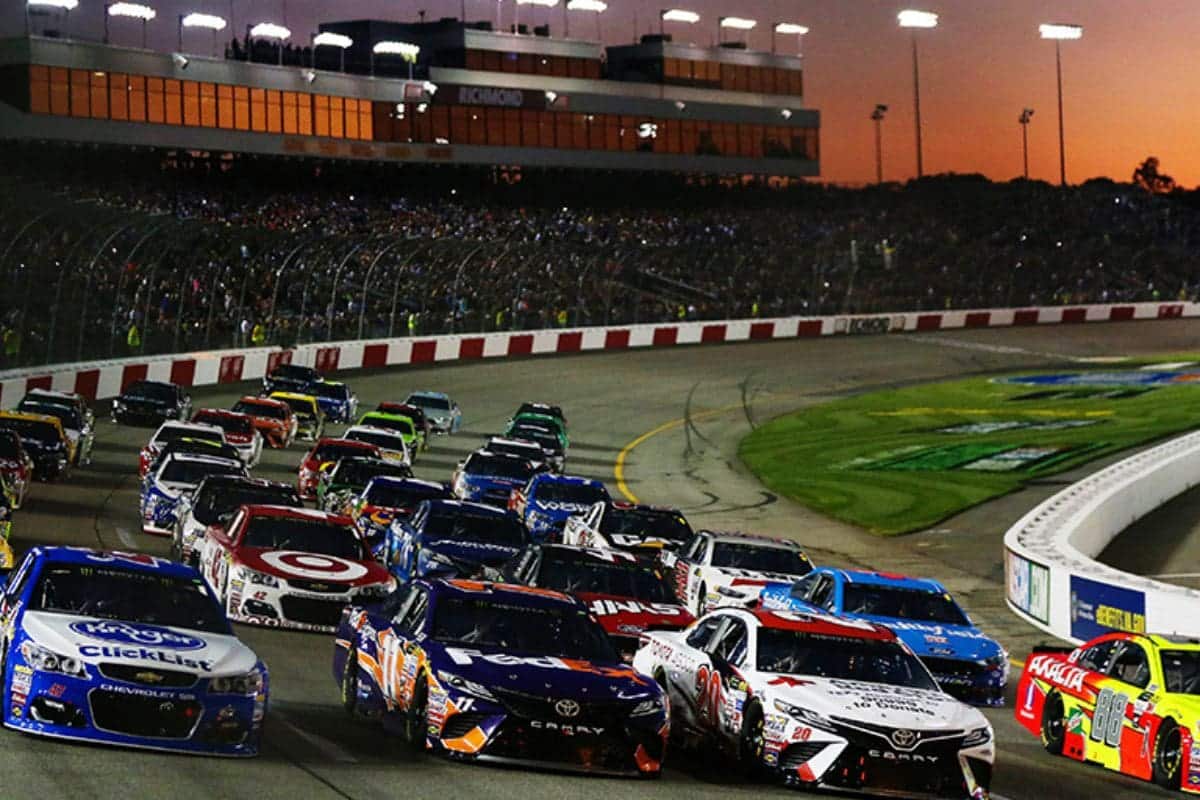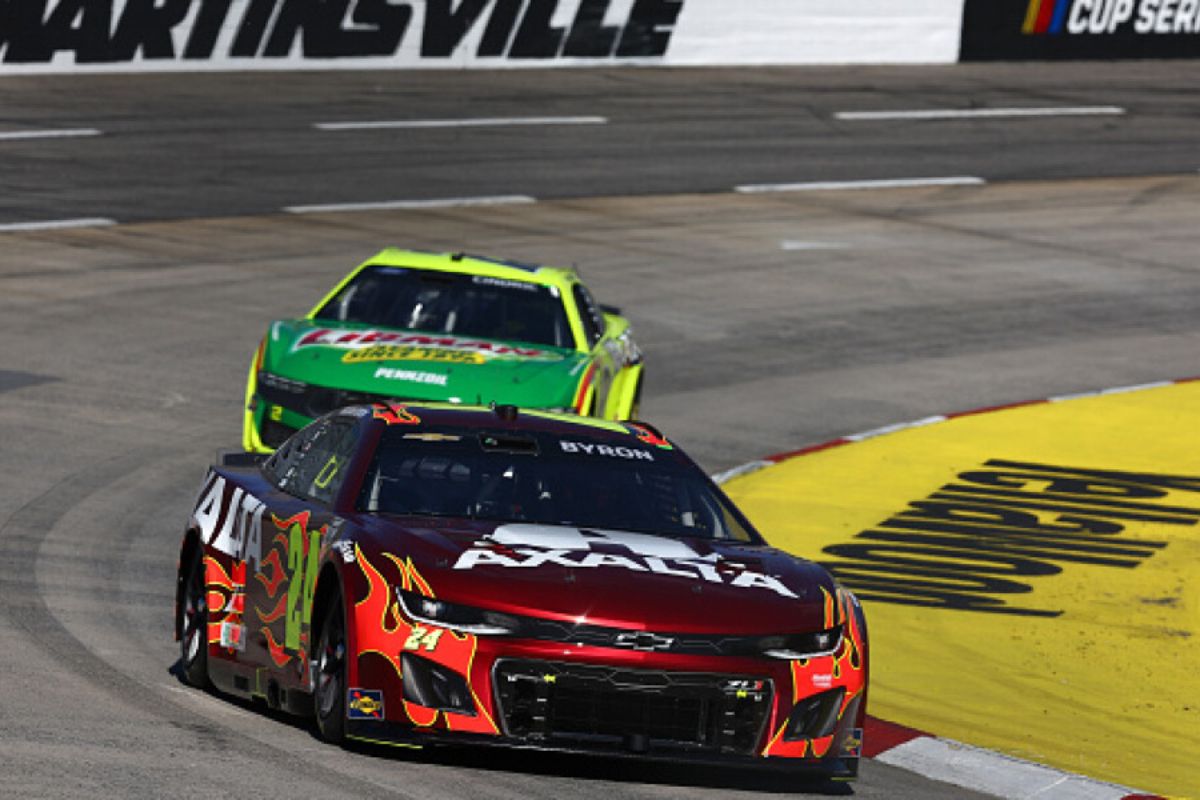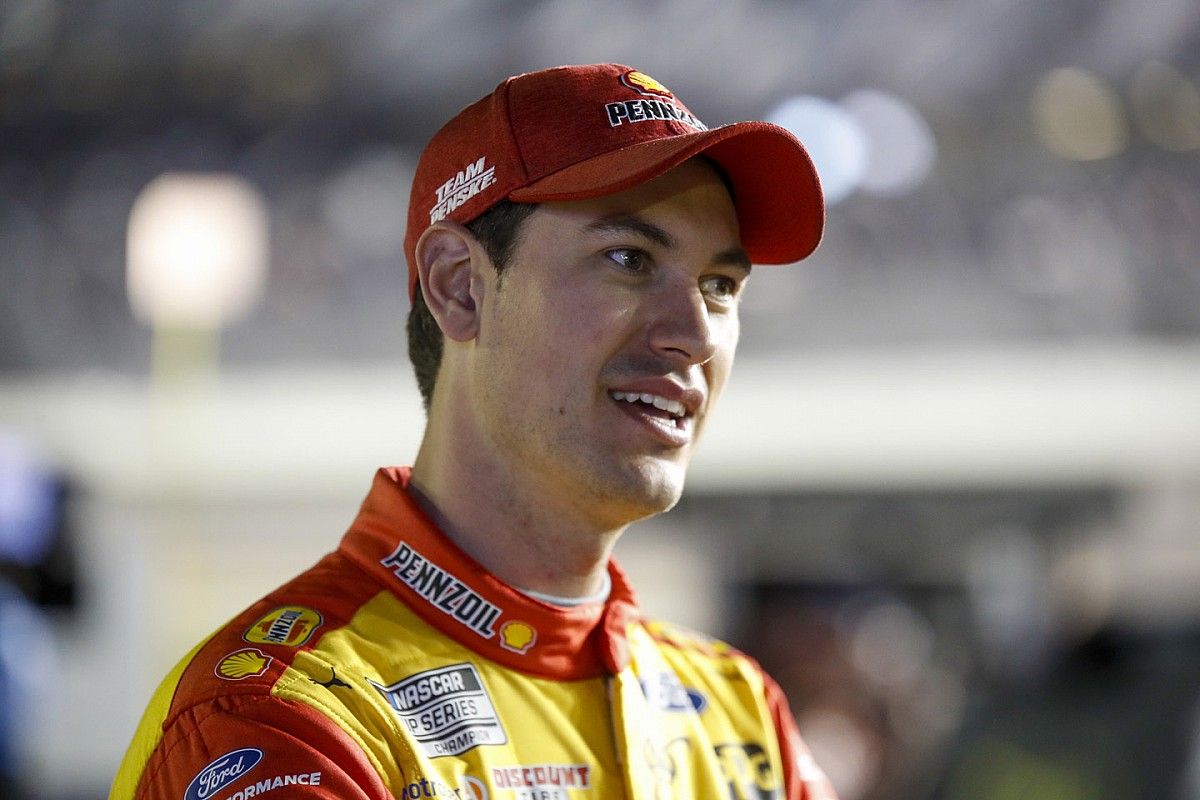Michael McDowell Supports NASCAR Penalty: Michael McDowell‘s endorsement of NASCAR’s penalty against Austin Dillon emphasizes a critical conversation regarding driver accountability and safety within the sport. By advocating for consistent enforcement of penalties, McDowell highlights the necessity of maintaining competitive integrity and promoting a respectful racing atmosphere. This debate reflects the sentiments of many drivers and raises questions about the implications of such penalties on the broader landscape of NASCAR. What does this mean for future incidents, and how might it shape the behavior of drivers on the track?
Key Highlights
- Michael McDowell endorses NASCAR’s penalty against Austin Dillon, emphasizing the need for accountability in driver behavior to enhance race safety.
- He believes consistent penalization is crucial for maintaining the integrity of NASCAR and ensuring a respectful racing environment.
- McDowell supports NASCAR’s commitment to safety, fairness, and integrity, which aligns with the broader driver consensus on acceptable conduct.
- The penalty against Dillon reflects NASCAR’s strict enforcement of rules, similar to the precedent set by Joey Logano’s disqualification in 2017.
- McDowell’s perspective indicates a potential shift towards more cautious driving strategies among competitors, promoting a safer racing atmosphere.
Overview of the Penalty
In view of recent events, NASCAR’s decision to impose a penalty on Austin Dillon and Richard Childress Racing (RCR) has sparked considerable discussion within the racing community. The penalty, which involved the revocation of Dillon’s automatic qualification for the playoffs following his win at Richmond, has been characterized as a notable move by the governing body.
Traditionally, NASCAR’s penalties have relied on established precedents; however, this situation marks a departure from that norm, as it seeks to address and curtail erratic driving behaviors that compromise race safety.
The severity of the punishment indicates NASCAR’s commitment to maintaining a high standard of conduct among competitors. By choosing to penalize Dillon, NASCAR aims to send a clear message regarding the implications of reckless behavior on the track. The decision has been met with mixed reactions, but many within the Cup Series, including noted figures like Michael McDowell, have publicly supported the ruling, viewing it as a necessary step for the integrity of the sport.
In the context of recent race incidents, the penalty serves as a crucial point in NASCAR’s regulatory framework, establishing a new benchmark for accountability. This ruling not only affects Dillon and RCR but also sets a precedent that may influence future decisions regarding driver conduct.
Michael McDowell’s Perspective
Often, drivers within the NASCAR community express differing views on regulatory decisions, but Michael McDowell stands firmly in support of NASCAR’s penalty against Austin Dillon. McDowell’s endorsement reflects a broader consensus among drivers who were dissatisfied with the chaotic nature of the recent Richmond race. The event, characterized by aggressive driving that resembled a demolition derby rather than a traditional stock car race, raised considerable concerns about the integrity of competition.
Austin Dillon’s actions, particularly his collisions with Joey Logano and Denny Hamlin, prompted a reevaluation of acceptable conduct on the track. McDowell articulated his stance clearly during an interview with SiriusXM NASCAR Radio, stating, “I’m okay with the decision that they made, and I’m okay with the process they went about it.” His remarks highlight a collective acknowledgment among drivers about the boundaries of competitive behavior. According to McDowell, the prevailing sentiment is that Dillon’s actions crossed a line, suggesting that the race’s outcome did not align with the principles of fair competition.
“So I’m okay with the decision that they made, and I’m okay with the process they went about it. I think we all kinda of know what’s gonna be penalized? What’s not gonna be penalized? But the fact of the matter is what everybody watching, and all the drivers, I would say, are gonna agree that Sunday’s race was probably too far.” – McDowell
Furthermore, McDowell emphasizes the necessity for NASCAR to maintain a consistent framework for penalizing conduct that undermines the sport’s integrity. By supporting the penalty, he advocates for a standard that discourages reckless behavior and promotes a safer, more respectful racing environment.
NASCAR’s Justification
While the decision to penalize Austin Dillon may have sparked debate among fans and drivers, NASCAR’s justification for the action rests on established standards of conduct within the sport. According to NASCAR’s Senior Vice President of Competition, Elton Sawyer, drivers are well aware of the boundaries that should not be crossed during a race. This understanding is essential for maintaining order and safety in a highly competitive environment.
Michael McDowell, a fellow driver, echoed this sentiment, emphasizing that the racing community is generally in agreement about what constitutes acceptable behavior. He remarked, “I think we all kinda know what’s gonna be penalized, what’s not gonna be penalized. But the fact of the matter is what everybody watching and all the drivers, I would say, are gonna agree that Sunday’s race was probably too far.”
🗣️ "I think everybody kind of knew the line was crossed Sunday night."@Mc_Driver agrees with #NASCAR's penalty to Austin Dillon and shares his take on the identity and governing of the on-track behavior in the sport moving forward.
More → https://t.co/MKhd9eLXG8 pic.twitter.com/xhSx3Z41bc
— SiriusXM NASCAR Radio (Ch. 90) (@SiriusXMNASCAR) August 15, 2024
This collective acknowledgment highlights the necessity of enforcing penalties to preserve the integrity of the sport.
- Safety: Protecting drivers and teams from reckless behavior that can lead to accidents.
- Fairness: Ensuring that all competitors adhere to the same rules, fostering a level playing field.
- Integrity: Maintaining the sport’s reputation and trustworthiness among fans and stakeholders.
Historical Precedent: Joey Logano
Stripping a driver of a win has become a substantial and often controversial action within NASCAR, particularly emphasized by the case of Joey Logano in 2017. The incident at Richmond Raceway marked a significant moment in the sport’s enforcement of rules during the playoff era. Logano, who crossed the finish line initially in the spring race, celebrated what was initially perceived as an essential victory.
However, his elation was short-lived when a post-race inspection revealed violations that led NASCAR to disqualify him, effectively nullifying the win. This decision had considerable ramifications, as it not only deprived Logano of a victory but also directly impacted his playoff eligibility.
The irony of this situation is palpable; Logano’s aspirations for the 2017 playoffs slipped away as he faced the harsh reality of NASCAR’s stringent regulations. The example set by this ruling highlighted the fine line NASCAR walks in maintaining the integrity of the sport while ensuring compliance with established rules.
Logano’s case serves as a reminder of the consequences that can arise from infractions, particularly during critical periods such as the playoffs. The decision to strip a win is not taken lightly; it reflects NASCAR’s commitment to upholding standards that govern competitive fairness.
Comparison to Previous Rulings
The ruling against Austin Dillon and Richard Childress Racing (RCR) this week resonates with the precedent established in Joey Logano’s case, demonstrating NASCAR’s consistency in enforcing penalties. In both instances, the governing body took decisive action to uphold the integrity of the sport, reflecting a clear stance against behavior deemed detrimental to competitive fairness.
By stripping Dillon of crucial playoff points, NASCAR seeks to deter erratic behavior on the track, much like the ruling that affected Logano. However, while Logano retained his trophy and the win, Dillon’s situation highlights the evolving nature of NASCAR’s disciplinary measures.
Key comparisons between the two rulings include:
- Impact on Points: Both drivers faced notable point deductions, emphasizing NASCAR’s focus on the importance of maintaining competitive standards.
- Playoff Implications: Logano’s penalty directly affected his playoff eligibility, a precedent that could likewise impact Dillon’s chances this season.
- Behavioral Deterrence: The rulings serve as warnings to drivers about the consequences of reckless actions, reinforcing NASCAR’s commitment to safety and professionalism.
These penalties signal to teams and drivers that NASCAR is steadfast in its mission to guarantee a level playing field. The consistency in these rulings may also foster a culture of accountability, encouraging competitors to adhere to a higher standard of conduct on the racetrack.
News in Brief: Michael McDowell Supports NASCAR Penalty
Michael McDowell’s endorsement of NASCAR’s penalty against Austin Dillon highlights the necessity for accountability within the sport. This decision not only aims to improve driver safety but also reinforces the principles of competitive integrity. By maintaining consistent enforcement of penalties, NASCAR can foster a respectful and disciplined racing environment. The historical context provided by previous rulings, such as those involving Joey Logano, further demonstrates the importance of such measures in promoting safer racing conditions for all participants.
ALSO READ: Austin Dillon’s Richmond Wreck: NASCAR Penalty Sends Warning to Drivers



